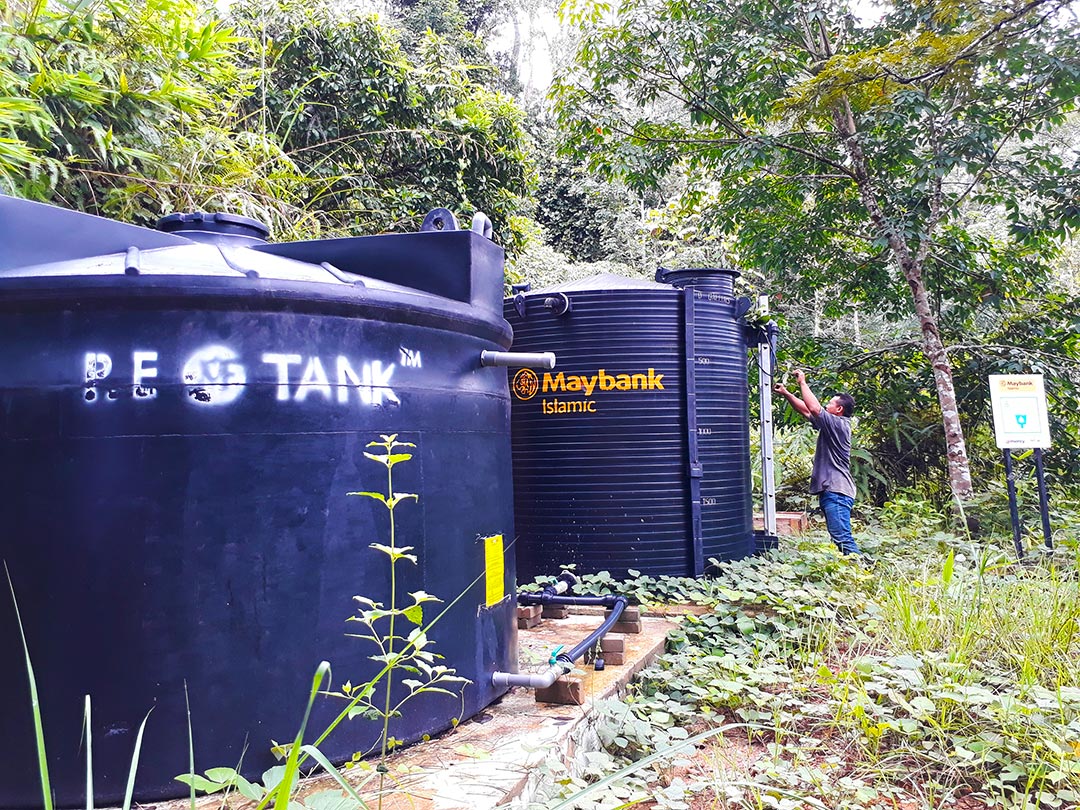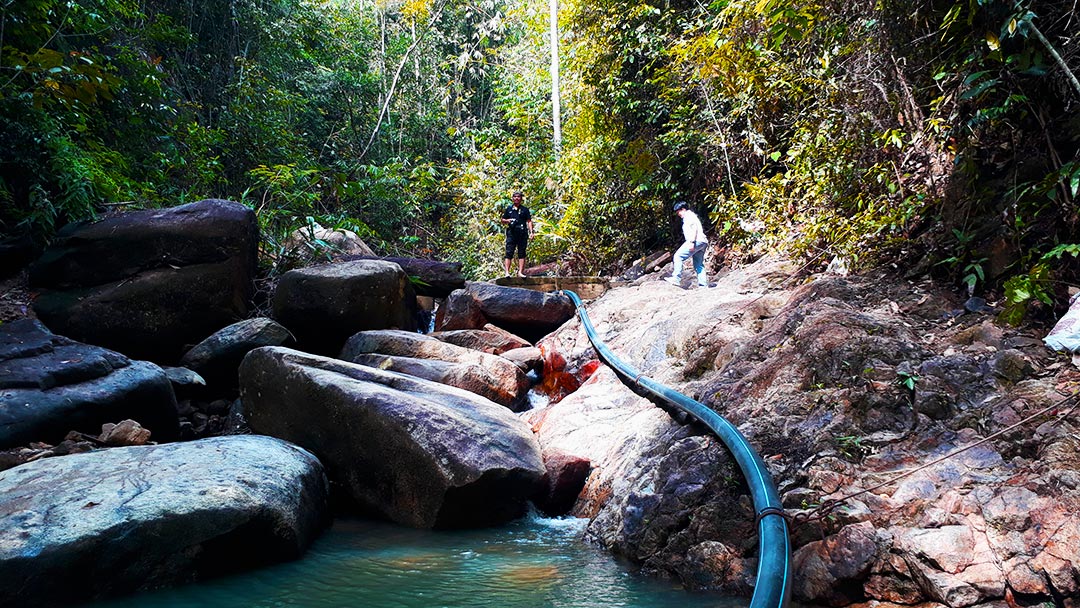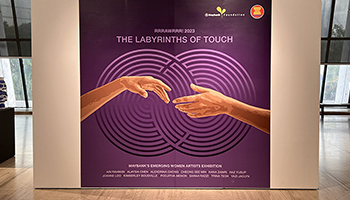We all know that water is vital to life. We use it every day and for those of us who have easy access to it, we may take it for granted. After all, all you need to do is turn on a tap and voila, there you have it
70% of the Earth’s surface is water. That certainly sounds like a lot, and it really doesn’t seem like we need to be worried about not having enough water. But here’s where it gets interesting, 97% of that is the oceans, and this means salty water that cannot be used for agriculture or our everyday uses. We rely on fresh water and this is a finite resource.

Access to clean water is important to a community's health, livelihood and environment.
Do we need to conserve water? Yes, we do. The “turn off the tap while you’re brushing your teeth” reprimands aren’t just to nag you, they are to protect and avoid wastage of this precious resource that all too often we take for granted. For a brief reminder on what life would be like without fresh water, just think of water cuts and how inconvenient and difficult it is to do most things on those hours/days. Now imagine those water cuts but without an end to them. Unpleasant, at best. Worst case, life threatening.
Supply of fresh water is affected by a number of factors; overdevelopment, pollution, global warming just to name a few. As population and industries grow, so do the demand and usage of fresh water. Water needs to be treated before it is used by the general population and this means water treatment plants have to churn out clean water at a fast rate to avoid scarcity – the faster we use it, the faster it needs to be recycled.
Clean water is what we expect when we turn on our taps and we use this for drinking, cooking, cleaning, etc. And while we may put up with the inconvenience of water cuts every once in a while, it doesn’t compare to others who may not have easy access to clean water where they live. This means no clean water for drinking and practicing basic hygiene. Waterborne diseases are a very real and dangerous concern for these communities.
Safe drinking water, sanitation and hygiene are crucial to human health and well-being, and there are many rural communities who still don’t have access to it, which puts their health, well-being and livelihoods at risk.
WASH Programme
Maybank Islamic’s WASH programme not only recognises the importance of clean water as a prerequisite to health, but also the impact that it has on livelihoods, the community and the environment. Through this programme, Maybank puts in place the infrastructure for access to clean and safe water, therefore reducing the incidences of waterborne diseases through sustainable and hygiene practices. This in turn improves the health and socioeconomic well-being of the communities.

Maybank puts in place the infrastructure for access to clean and safe water.
The WASH programme also improves the quality of water sources for the underserved communities in rural areas, and ensures sustainability by promoting integrated water resources management at the local level with a focus on maintaining the quantity and quality of drinking water.
Maybank Islamic’s WASH programme has thus far benefitted 7232 homes and raised over RM2.5M through the zakat fund for the implementation of the programme (as at end 2022).
Protect our Resource
You too can do your part in conserving water and it doesn’t require any major life-changing decisions. Just adopt some of the below into your everyday life.
- Turn off the tap when not in use
- Don’t leave the water running while brushing your teeth or shaving
- Collect rainwater for outdoor cleaning or for watering your plants later
- Make the necessary repairs to leaky pipes/taps and report any leakages that you see to the relevant bodies
- Take shorter showers instead of baths
- Don’t use your toilet as a waste basket
- Don’t throw unused water away, keep it to water your plants or other uses
- Wash your car with water from a bucket instead of a running hose
- If you use a hose, get one with an automatic shut-off nozzle to control the water flow
(Not So) Fun Fact
A leaky tap dispensing a drop of water every second can waste up to 22 litres of water a day. Multiply that by days, months or even years and you have a lot of water literally going down the drain.

